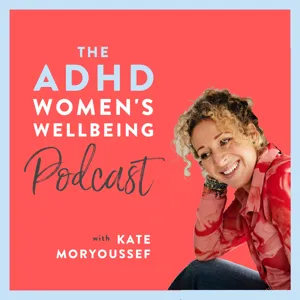Podcast Summary
Protecting Our Teeth and Shopping Smart in Our 20s: Embrace self-care by protecting teeth with quality products, shop smartly for affordable essentials, and use technology for quick presentations. Identity crises are a natural part of our 20s, use this time for personal growth.
Our 20s can be a challenging time for various reasons, including neglecting our health, especially our teeth. Protecting our teeth with products like Pronamel's intensive enamel repair toothpaste and mouthwash is essential as we only get one set. Meanwhile, shopping for affordable yet quality products like Kroger brand items can make us feel like we're winning. For those constantly on the go, Canva presentations' AI-powered slides can help generate captivating slides quickly and easily. On a deeper level, identity crises are a common experience in our 20s, a time for self-assessment and growth. Rather than viewing it negatively, embracing this period as an opportunity for personal development can lead to positive outcomes. Remember, taking care of our physical health and mental well-being are crucial during this transformative decade.
Exploring our true selves during early adulthood: An identity crisis is a natural part of growing up, involving self-exploration and recognizing our evolving sense of self, leading to personal growth
An identity crisis is a developmental event characterized by a person questioning their sense of self and place in the world. Eric Erickson, a psychoanalyst from the 1900s, believed it to be a crucial challenge for recognizing our true selves. Identity is not a stagnant construct but rather something that evolves throughout our lives. An identity crisis can occur during our early adulthood and involves intensive self-exploration. It's important to understand that our identity is not a fixed collection of items, but rather something deeper and nuanced. The crisis symbolizes internal psychological changes and can feel mentally, socially, and emotionally challenging. However, pushing through this hardship leads to personal growth and development.
Exploring the complexities of identity: Values like honesty, authenticity, and freedom shape our identity and guide us through life's challenges. Social roles also contribute to our understanding of self.
Identity is a complex and multifaceted concept that encompasses various elements, including personal qualities, basic values, and social roles. Our identity is constantly evolving, especially during young adulthood, and it is influenced by numerous factors. To better understand our identity, it can be helpful to contemplate our most important values and how they shape our choices and moral character. Values such as honesty, authenticity, and freedom can inform our self-concept and guide us through life's challenges. Additionally, our social roles, such as being a friend, employee, or family member, can help us discern who we are and what we represent. By reflecting on these aspects of identity, we can gain a deeper understanding of ourselves and emerge from periods of uncertainty stronger and more authentic.
Understanding the Complexity of Identity: Our identity is shaped by various elements including social roles, group affiliations, passions, and values. It's important to remember that our identity is multifaceted and constantly evolving.
Our identity is a complex and multifaceted construct, formed by various elements including our social roles, group affiliations, passions, and values. Social roles, such as being a student or a family member, can sometimes come into conflict and cause dissonance or an identity crisis. Group affiliations, like religious beliefs or being part of a sports team, can also significantly shape our identity. Our passions and hobbies, what we love doing and what fuels us, are just as crucial in defining our identity as our larger values and beliefs. It's important to remember that our identity is not just one thing, but a combination of many layers, and that it's okay if we don't have all the answers right now. As we explore our experiences and opportunities in life, we will continue to uncover what truly defines us at our core.
Distinguishing between true and false self: Understanding the difference between our true, authentic self and false, defensive self can help us navigate an identity crisis and live more authentically during our 20s.
Our sense of identity is complex and multifaceted, and it's important to distinguish between our true self and our false or peripheral self. Our true self is based on authentic experiences, deep inner values, and a sense of being present and alive. It includes our mission, purpose, connections with loved ones, and self-concept. Our false self, on the other hand, is a defensive facade based on learned and controlled behaviors. It's made up of superficial and inconsistent factors like how we wish others to perceive us. When we can identify and exhibit our true self, we're likely to be happier and more fulfilled. However, during our 20s, a period of significant change and growth, an identity crisis can occur, leaving us uncertain and confused about our sense of self. This can be triggered by unexpected changes in our roles, aims, or lifestyles. Understanding the distinction between our true and false selves can help us navigate an identity crisis and live more authentically.
Navigating Identity Crisis in Early Adulthood: Identity crisis is a normal part of early adulthood caused by change and uncertainty in life. Social roles and relationships shape our values, beliefs, and goals. With time and self-reflection, we can emerge from this period with a renewed sense of self.
Change and uncertainty in life can lead to an identity crisis, a period of confusion and self-discovery. This can be triggered by various events such as moving, losing loved ones, illness, injury, or the end of a relationship. During these transitions, our social roles and relationships shape our values, beliefs, and goals. When these roles change, we may feel lost and unsure of who we are. This concept was first explored by psychoanalyst Eric Erickson, who identified the identity crisis as a normal part of early adulthood development. It's important to remember that this is a normal and expected part of life, and with time and self-reflection, we can emerge from this period with a renewed sense of self.
Exploring self-identity during early adulthood: Early adulthood is a time for questioning values, beliefs, and career paths to find greater meaning and purpose, which can involve feelings of low self-esteem, aimlessness, and emotional instability.
The early adulthood stage is a time for seeking individuality and developing self-identity, which can involve feelings of low self-esteem, aimlessness, and emotional instability. This period, often triggered by external changes, is a normal and natural part of life where we question our values, beliefs, and career paths in search of greater meaning and purpose. Two psychologists, Eric Erickson and James Marcia, have different perspectives on this process, with Erickson emphasizing the importance of reviewing and redefining our inherited beliefs, and Marcia proposing that we all go through stages of identity exploration and commitment. Regardless of the approach, this stage is a crucial time for self-discovery and growth.
Exploring new possibilities for identity: Identity crises offer opportunities for growth and self-discovery, encouraging individuals to actively explore their values, passions, and beliefs to emerge stronger and more self-aware.
Identity formation is a continuous process that can involve periods of uncertainty and crisis. According to psychologists like James Marcia and Erik Erickson, an identity crisis occurs when individuals feel disoriented with their established way of life and begin to explore new possibilities for their identity. This phase, called identity diffusion, can be a time of paralysis and uncertainty, but it's also an opportunity for growth and self-discovery. Marcia believed that individuals might experience repeated identity crises throughout their lives, particularly during major life transitions like graduating from university or entering midlife. To navigate this process, it's important to actively explore your values, passions, and beliefs, rather than slipping into a state of stagnation or depression. By doing so, you can emerge from an identity crisis as a stronger, more self-aware version of yourself. Remember, identity is not a fixed construct, but a dynamic one that evolves throughout our lives. So, embrace the uncertainty and use it as an opportunity to grow.
Exploring Identity and Avoiding Existential Crisis: Reflecting on our qualities, values, interests, and passions can lead to a more authentic and fulfilling life. Major life changes can impact our identity, so seeking out activities and relationships that align with our true selves can help us navigate these transitions.
Identifying and understanding who we are and what we stand for is essential for personal growth and avoiding existential crisis. During different stages of life, we may face a crisis of identity, but it's important to take time to reflect and ask ourselves deep questions about our qualities, values, interests, and passions. We should also consider how major life changes impact us and seek out activities and relationships that help us feel like our true selves. These introspective exercises can lead to a more fulfilling and authentic life, as explained by psychologists like Erickson and Marcia. Additionally, seeking the perspective of trusted friends and family can provide valuable insights and help us overcome feelings of uncertainty about our identity.
Navigating Identity Crisis: Self-Exploration and Growth: Explore your values, interests, and hobbies to understand your unique identity. Seek professional help if needed. Spend time alone in nature for clarity. Keep growing and emerging as a better version of yourself.
Going through an identity crisis is a normal and natural part of growing up and entering adulthood. It's a time for self-exploration and figuring out who you truly are. Spending time alone in nature without distractions can be healing and provide clarity. It's important to examine your values, interests, and hobbies to understand what makes you unique. Seeking professional help can also be beneficial when dealing with identity issues. Remember, you will emerge as a better, truer version of yourself if you put in the effort to work through this process. Additionally, the speaker encourages listeners to consider becoming a paid subscriber to access exclusive content and support the podcast's growth.
Protecting and Repairing Teeth with Pronamel and Discovering Black-led Products at Walmart: Prioritize tooth care with Pronamel enamel repair, discover Black-led products during Black History Month at Walmart, and create professional presentations with Canvas AI-powered Canva
Taking care of your teeth is essential, and Pronamel intensive enamel repair is a dentist-recommended solution for protecting and repairing acid-weakened enamel. Additionally, Black History Month is a great opportunity to discover and try Black-led products at Walmart, and Canvas AI-powered Canva presentations can help you quickly create impressive slides for work. Firstly, Pronamel toothpaste and mouthwash are crucial for maintaining good oral health. Pronamel penetrates deep into the enamel surface and locks in vital minerals to repair acid-weakened enamel. Neglecting your teeth can lead to irreversible damage, so it's essential to prioritize their care. Secondly, during Black History Month, Walmart is hosting events at the Flatiron Plaza in New York City and Ovation Hollywood in Los Angeles. These events offer a chance to try, like, and share Black-led products for free. It's an excellent opportunity to discover new brands and level up your daily routine. Lastly, for those always looking to streamline their work processes, Canvas AI-powered Canva presentations can help create impressive slides in seconds. With a simple prompt and a few descriptive words, Canva generates captivating slides that can be easily customized to fit your style and content. This tool is perfect for quickly creating professional-looking presentations.






